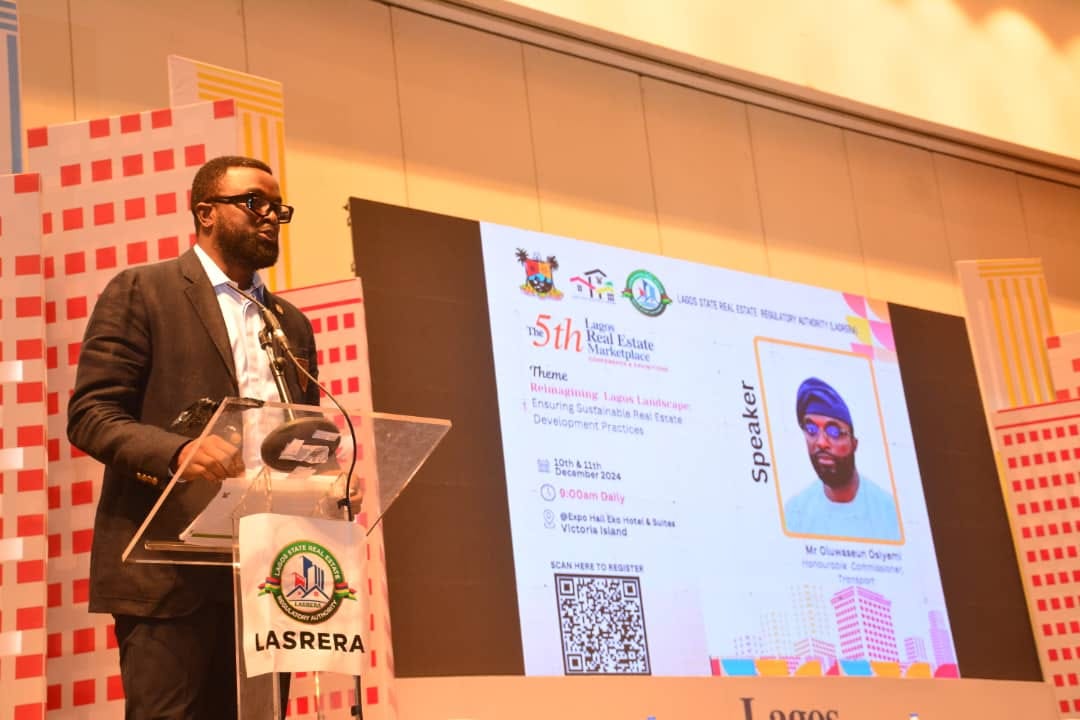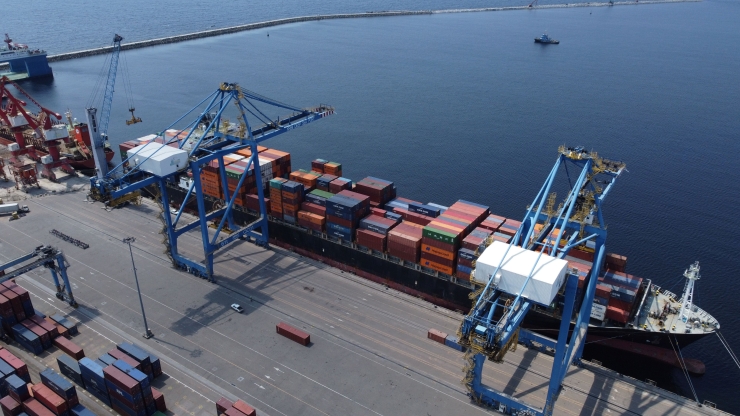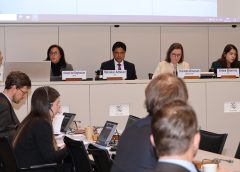The Lagos State Government has reaffirmed its commitment to advancing intermodal transportation systems as a key driver of socio-economic growth and a solution to the State’s persistent traffic challenges. Speaking at the 5th Lagos Real Estate Marketplace Conference and Exhibitions, Mr. Oluwaseun Osiyemi, the Lagos State Commissioner for Transportation, highlighted the urgent need to diversify the city’s transport modes and reduce its over-reliance on road networks.
Current Transportation Imbalance in Lagos
Osiyemi described the existing transportation framework in Lagos as heavily skewed, with 90% of transit activities dependent on roads, while water and rail systems account for only 2% combined. This imbalance, he stressed, is unacceptable for a state that contributes 30% of Nigeria’s GDP, and one that faces economic losses amounting to trillions of naira annually due to traffic congestion.
The Commissioner emphasized that intermodal transport, integrating roads, railways, and waterways, is vital to achieving Lagos’ vision of an eco-friendly and economically vibrant megacity. He cited the importance of reducing the number of vehicles on the roads as part of Governor Babajide Sanwo-Olu’s T.H.E.M.E.S Agenda, which prioritizes Transportation and Traffic Management alongside other strategic pillars for the state’s development.
Building a Future-Ready Transport System
Osiyemi underscored that Lagos’ future lies in adopting green, sustainable, and efficient transportation systems. Waterways and rail networks, in particular, have immense potential to decongest Lagos’ overburdened roads, improve commuting times, and reduce the environmental impact of transportation in the state.
This approach reflects a broader understanding of the need for transport systems that not only move people efficiently but also contribute to the overall well-being of the population by reducing stress and enhancing productivity.
A Call to Action for Sustainable Urban Mobility
The Conference also served as a platform to discuss sustainable urban development, with stakeholders emphasizing the need for improved infrastructure, government support, and private sector investment to develop and expand intermodal transport systems. Panelists pointed out that integrating transportation planning with urban housing development could open up hinterlands, reduce urban congestion, and boost access to affordable housing.
Lagos State’s focus on intermodal transportation is a necessary and ambitious step toward tackling its urban mobility crisis. By balancing its reliance on roads with robust investments in rail and water transport, Lagos aims to build a sustainable, efficient, and inclusive transport system. This transformation is not just critical for economic growth but also essential to securing a higher quality of life for the millions of residents navigating Africa’s largest megacity daily.
Lagos’ efforts to address these transportation challenges underscore its commitment to becoming a model for other African cities facing similar issues of urban mobility and infrastructure strain.






